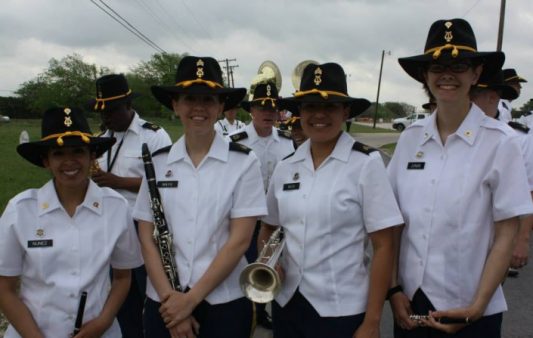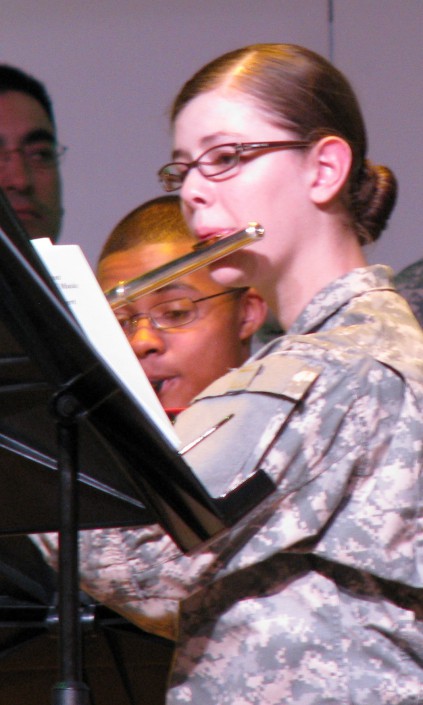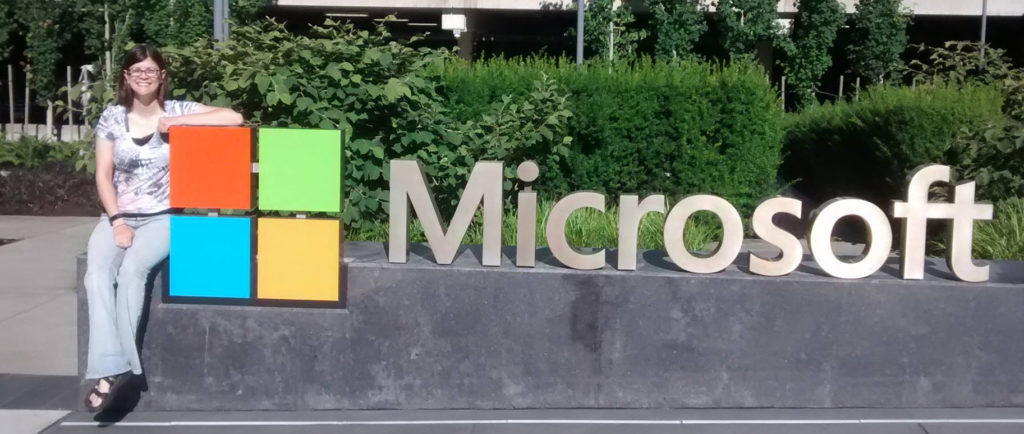Army specialist embraces MSSA’s culture of learning
There are as many different types of jobs in the military as in the civilian world, and as many people with the varied skills to fill them. Some service members end up holding guns, some end up holding tools and some end up holding musical instruments. Jennifer Jungk, a former specialist in the Army, was a member of the latter group. As a music major in college, she began to feel burnt out and needed to make a change. Jungk, along with her husband, decided to join the Army. She spent her enlistment as part of the 1st Cavalry Division Band at Fort Hood, Texas, where she played the flute.

“We were a vital part of the many ceremonies the Army observes: changes of command, troops heading out for deployment or returning from deployment, visiting dignitaries, the Army’s birthday, and community parades, just to name a few,” Jungk says. “But we still went through basic training and, though I wasn’t deployed, the band can be deployed to help boost troop morale overseas.”

So how did a former music major and Army flutist end up as a software engineer at Microsoft? It all started with an ad for Microsoft Software & Systems Academy (MSSA) in the Army Times. Jungk was in the midst of planning whether to re-enlist or transition out of the Army when she saw the MSSA ad, which offered her the answer she’d been searching for.
“When I was considering transitioning out, I looked at a lot of options,” she says. “Making a living as a civilian musician is not an easy task, and I was ready for a new challenge. Unlike other divisions of the Army, the band does not have personnel assigned to perform roles like administration, training or managing supplies; rather, each band member has a secondary role covering one of these areas. I happened to be assigned to manage IT for the band, so I had some background in tech — and MSSA seemed like a great fit.”
MSSA is an intensive 18-week course that provides active duty U.S. service members with the career skills necessary to meet the IT industry’s high demand for talent at bases across the country. In addition, Microsoft employees mentor participants in areas like resume writing, interviewing and translating their military experiences into corporate language. Jungk says she crammed a lot of learning into those 18 weeks. “Though I’d been doing IT for the band,” she says, “it was mostly getting network accounts created and deleted as people arrived and left, installing drivers and software on computers, troubleshooting, and setting up new computers. I didn’t have exposure to coding or programming, so the MSSA material was brand new to me.”
Graduates of the program are guaranteed an interview at Microsoft or one of its hiring partners; Jungk interviewed for and landed a software engineer position at Microsoft. Jungk, her husband, their 2 1/2-year-old and their two dogs spent four days driving from Texas to the Pacific Northwest for their next adventure, and she began working at Microsoft in mid-September. Since she started, the culture of learning that she appreciated from MSSA has been a constant in her new role as well.
That willingness to embrace learning has made all the difference in her transition, Jungk says. “You get out of MSSA what you put into it. If you’re not going into it ready to learn and take advantage of all the opportunities, you’re doing yourself and everyone else a disservice. I listened, learned, worked hard and put my all into the program, and it’s more than paid off for me.”

